
Bruce House in Ottawa, Ontario, Canada, has been serving individuals living with HIV and AIDS for 33 years. Here we speak with Patrick Morley, office and communications coordinator.

Bruce House in Ottawa, Ontario, Canada, has been serving individuals living with HIV and AIDS for 33 years. Here we speak with Patrick Morley, office and communications coordinator.

Frank Martin, PhD, director of research at JDRF, on the organization’s T1Detect screening program and exploring potential causes of type 1 diabetes.
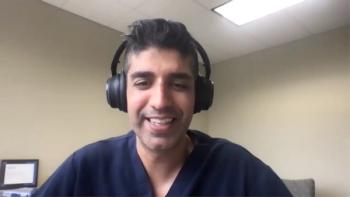
Rajiv Nijhawan, MD, is associate professor of dermatology and Mohs surgeon at UT Southwestern (UTSW) Medical Center and director of the UTSW High Risk Skin Cancer Transplant Clinic, both in Dallas, Texas.

Christine Ko, MD, is professor of dermatology and pathology at Yale University and a presenter of “What's New in Dermatopathology” at this year’s American Academy of Dermatology Virtual Meeting Experience (AAD VMX).

A changing climate affects every organ system of the body, individual patients, and population-based health, noted Misha Rosenbach, MD, associate professor of dermatology and internal medicine at the University of Pennsylvania.

Changes to naming conventions and interchangeability labels are just some of the regulatory barriers standing in the way of biosimilar uptake, according to Kaiser Permanente researchers.

Megan Olsen, MPH, principal at Avalere, discussed how gene and cell therapies can offer new treatment options for patients with cancer.

Atopic dermatitis has a tremendous affect on quality of life, so it’s nice to have more options to treat patients in a different way, noted Lawrence F. Eichenfield, MD, chief of pediatric and adolescent dermatology at Rady Children's Hospital-San Diego.

Rebecca Borgert, PharmD, BCOP, and Jim Rebello, PharmD, from Magellan Rx Management, discussed what evidence they believe could persuade payers to include biosimilars as preferred formulary products.

Karen Coderre, PharmD, and Madhavi Manduru-Rao, PharmD, detail how CMS' increased weighting for Consumer Assessment of Health Care Providers and Systems surveys impacts Star ratings.

For some living with HIV, old wounds have reopened during the COVID-19 pandemic, explained Perry N. Halkitis, PhD, MS, MPH, dean of the Rutgers School of Public Health and director of the Center for Health, Identity, Behavior and Prevention Studies.

Brenden O’Hara, RPh, BCACP, from Blue Cross Blue Shield of North Carolina, talked about the pharmacist’s role in improving outcomes in value-based contracts and why collaboration is needed.

Christina Polomoff, PharmD, BCACP, BCGP, discusses the differences between manufacturer coupons and cash cards and how they financially affect health plans and pharmacies.

Jonathan Silverberg, MD, PhD, MPH, is an author of the poster, “Efficacy of Ruxolitinib Cream Among Patients With Atopic Dermatitis Based on Previous Medication History: Pooled Results From Two Phase 3 Studies,” which will be presented at this year’s American Academy of Dermatology Virtual Meeting Experience (AAD VMX).

Several barriers continue to impede the transition to value-based payment, particularly administrative and clinical data connectivity, transparency of quality metrics and quality measures, and prioritization of social determinants of health.
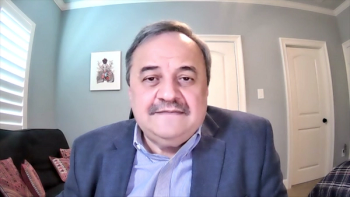
Nicola Hanania, MD, MS, explains how some patients with chronic obstructive pulmonary disease (COPD) face challenges when it comes to affording treatment for the disease.
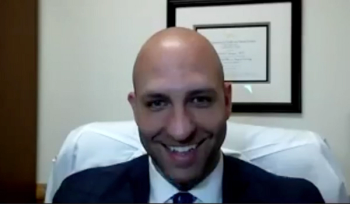
Russell Langan, MD, chief of Surgical Oncology and Hepatopancreatobiliary Surgery at Saint Barnabas Medical Center discusses the workflow of a cloud-based data management platform for patients with pancreatic cysts.

Lalan Wilfong, MD, executive vice president, Value Based Care & Quality Programs, Texas Oncology, and cochair, Payment Reform, Community Oncology Alliance, speaks on the evolution of remote monitoring in cancer care and how value-based oncology may look in the near future.

Edward Licitra, MD, PhD, medical oncologist, Astera Health Partners, discusses his thoughts on what value-based cancer care entails and how physicians can best align their goals with those of the patient and health plan.

Kathy Oubre, MS, chief operating officer of Pontchartrain Cancer Center, discusses cost-saving implications of biosimilars in oncology, as well as several barriers that continue to impede their use.

Ted Okon, MBA, executive director of the Community Oncology Alliance, discusses what influence the new administration may have on payment reform in oncology and issues regarding the 340B drug pricing program.

Jeff Patton, MD, CEO, OneOncology, and chairman of the board, Tennessee Oncology, discusses what influence COVID-19 will have on discussions at the Community Oncology Conference 2021, as well as takeaways he hopes audience members and participants gain from the conference.

To effect change, we must address health care disparities beyond the individual level, says Perry N. Halkitis, PhD, MS, MPH, dean of the Rutgers School of Public Health and director of the Center for Health, Identity, Behavior and Prevention Studies.

Lalan Wilfong, MD, executive vice president, Value Based Care & Quality Programs, Texas Oncology, and co-chair, Payment Reform, Community Oncology Alliance, discusses implications of quality metrics in cancer care and what perspectives on the topic he is looking forward to hearing at the 2021 Community Oncology Conference.
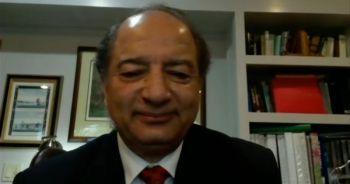
Dinesh Kapur, MD, chair, OneCouncil, and managing partner, Eastern Connecticut Hematology and Oncology (ECHO), speaks on efforts made by by community oncology practices to improve minority representation in oncology clinical trials and implications of the COVID-19 pandemic ahead of the 2021 Community Oncology Conference.
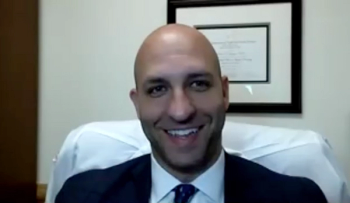
Russell Langan, MD, chief of Surgical Oncology and Hepatopancreatobiliary Surgery at Saint Barnabas Medical Center, details the implementation of the center's Pancreatic Cyst Surveillance Program.

This video excerpt is our second entry in a 6-part series on individuals and international organizations working to bring local and global awareness to the ongoing HIV/AIDS epidemic, which is marking its 40th anniversary this year.

Kathy Oubre, MS, chief operating officer, Pontchartrain Cancer Center, explores US adoption of biosimilars ahead of her panel discussion at the 2021 Community Oncology Conference, as well as what sessions she’s looking forward to attending.

Bo Gamble, Director of Strategic Practice Initiatives, Community Oncology Alliance, highlights his questions for the keynote speakers of the 2021 Community Oncology Conference, and takeaways he hopes audience members gain from the sessions.

Anita Makkenchery, MD, MPH, and Brandy Farrar, PhD, discuss the potential for community health workers to become a regular part of the health care system in a post-COVID-19 world.

259 Prospect Plains Rd, Bldg H
Cranbury, NJ 08512
© 2025 MJH Life Sciences®
All rights reserved.
